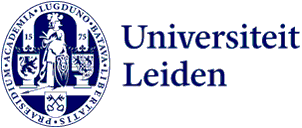Academic integrity
The integrity and reliability of academic research are of fundamental importance to the University. All parties, both within and outside the University, must be able to have confidence that our research is conducted in a scrupulous, fair, verifiable, impartial and independent manner.
The Netherlands Code of Conduct for Research Integrity lays down the five basic principles of academic research, which in turn serve as guidelines for all employees and students of Leiden University.
Five principles
The Code includes the five principles which form the basis of integrity in research:
Honesty means, among other things, reporting the research process accurately, taking alternative opinions and counterarguments seriously, being open about margins of uncertainty, refraining from making unfounded claims, refraining from fabricating or falsifying data or sources and refraining from presenting results more favourably or unfavourably than they actually are.
Transparency means, among other things, ensuring that it is clear to others what data the research was based on, how the data were obtained, what and how results were achieved and what role was played by external stakeholders. If parts of the research or data are not to be made public, the researcher must provide a good account of why this is not possible. It must be evident, at least to peers, how the research was conducted and what the various phases of the research process were. At the very least, this means that the line of reasoning must be clear and that the steps in the research process must be verifiable.
Responsibility means, among other things, acknowledging the fact that a researcher does not operate in isolation and hence taking into consideration – within reasonable limits – the legitimate interests of human and animal test subjects, as well as those of commissioning parties, funding bodies and the environment. Responsibility also means conducting research that is scientifically and/or societally relevant.
In the Code, these five principles are further elaborated into 61 standards for good research practices.
Focusing attention on academic integrity
All new members of the academic staff sign the Code of Conduct on Research Integrity. Meetings and courses are organised regularly in which issues relating to academic integrity are discussed.
Ancillary activities
All members of staff are required to register any ancillary activities in which they engage. Any member of staff who carries out work for third parties first requires the permission of the Board of the Faculty or department where they work. Ancillary activities of professors are indicated on their profile page on the University website.
Storing data responsibly
Good data management is important to ensure the quality of research and for data re-use. Academics can use the Research Data Management checklist. They can also follow a course on Data Management.
Suspicion of an academic integrity violation
Employees and PhD candidates can report a suspected integrity violation against a current or former employee / PhD candidate. All information will be handled in confidence. More information about social safety.
- The confidential counsellor on academic integrity is the first point of contact for any questions or suspicions relating to academic integrity.
- Employees and PhD candidates always have the option to submit a complaint directly to the Committee on Academic Integrity. The confidential counsellor can advise them about how best to do that.
The complainant can, of course, choose to first discuss their questions or concerns with other appropriate parties, for example, close colleagues or the Institute Director.
